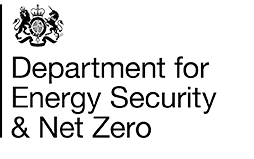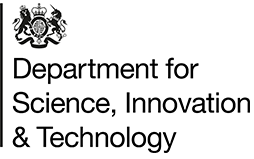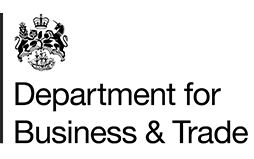Three new Donor profiles were created on www.developmentaid.org after the UK’s former Department for Business, Energy, and Industrial Strategy (BEIS) was split into three separate agencies. Thus, Albion-based organizations working in the aid sector can now exploit the tenders and grants launched by the newly created three agencies, directly from their DevelopmentAid cabinets.
The former Department for Business, Energy, and Industrial Strategy (BEIS) has been split into three departments, a Department for Energy Security and Net Zero (DESNZ), a Department for Science, Innovation and Technology (DSIT), and a Department for Business and Trade (DBT), with the Cabinet Office taking on the responsibility for national security and investment policy that was formerly under the remit of BEIS.
 The Department for Energy Security and Net Zero (DESNZ) will focus on long-term energy supply issues. The Department is headed by Grant Shapps, who previously served as the Secretary of State for BEIS from October 22 to February 2023. The immediate goal of the DESNZ will be “securing Britain’s long-term energy supply, bringing down [energy] bills, and thereby helping to halve inflation.”
The Department for Energy Security and Net Zero (DESNZ) will focus on long-term energy supply issues. The Department is headed by Grant Shapps, who previously served as the Secretary of State for BEIS from October 22 to February 2023. The immediate goal of the DESNZ will be “securing Britain’s long-term energy supply, bringing down [energy] bills, and thereby helping to halve inflation.”
Companies can access the agency’s profile on DevelopmentAid via this link.
See also: Britain announces bold plan to increase ODA spending in 2024
The creation of a dedicated energy department from a business department is the third time in British history that the two have been operated as separate entities inside the national government. The first was during World War II (Ministry for Fuel and Power) and existed until October 1969, when the Ministry of Power became part of the Ministry of Technology (Mintech) and in October 1970 Mintech merged with the Board of Trade to form the Department of Trade & Industry (DTI). The Department of Energy was set up in January 1974 and existed up until 1992.
A separate Department of Energy and Climate Change was created in 2008 and existed until 2016.
 The Department for Science, Innovation and Technology (DSIT) is intended to “drive innovation that will deliver public services, create new and better-paid jobs, and grow the economy,” while “helping make sure the UK is the most innovative economy in the world. The DSIT is headed by Michelle Donelan, previously the Secretary of State in charge of the Department for Culture, Media, and Sport (DCMS), a position she held for less than six months. The DSIT’s first major responsibility will be to oversee the controversial Online Safety Bill to more tightly regulate internet usage in Britain. The DSIT will also oversee Britain’s replacement for GDPR, known as the Data Protection and Digital Information Bill.
The Department for Science, Innovation and Technology (DSIT) is intended to “drive innovation that will deliver public services, create new and better-paid jobs, and grow the economy,” while “helping make sure the UK is the most innovative economy in the world. The DSIT is headed by Michelle Donelan, previously the Secretary of State in charge of the Department for Culture, Media, and Sport (DCMS), a position she held for less than six months. The DSIT’s first major responsibility will be to oversee the controversial Online Safety Bill to more tightly regulate internet usage in Britain. The DSIT will also oversee Britain’s replacement for GDPR, known as the Data Protection and Digital Information Bill.
British companies working in the sector can access the agency’s profile page on DevelopmentAid via this link.
 Department for Business and Trade (DBT) folded in with the Department for International Trade (DIT) and is helmed by the Secretary of State for Business and Trade, Kemi Badenoch.
Department for Business and Trade (DBT) folded in with the Department for International Trade (DIT) and is helmed by the Secretary of State for Business and Trade, Kemi Badenoch.
Companies looking into the DBT activity can access the donor’s profile on DevelopmentAid via this link.
Background
Approved on March 27, 2023, by the House of Commons in Britain, the former Department for Business, Energy, and Industrial Strategy (BEIS) has been split into three departments, a Department for Energy Security and Net Zero (DESNZ), a Department for Science, Innovation and Technology (DSIT), and a Department for Business and Trade (DBT), with the Cabinet Office taking on the responsibility for national security and investment policy that was formerly under the remit of BEIS.
The move to disband and split up the BEIS was initiated by Prime Minister Rishi Sunak on the occasion of a larger reshuffle of his cabinet of ministers.
The BEIS was created in 2016 by then PM Theresa May during a cabinet reshuffle by merging the Department of Business, Innovation and Skills (BIS) with the Department of Energy and Climate Change (DECC) with the idea of merging industrial strategy with science and innovation, energy policy, and combating climate change to “help ensure that the economy grows strongly in all parts of the country, based on a robust industrial strategy.”
The splitting of the BEIS and subsequent reorganization may cost over £100 million and take several years to become fully autonomous, functioning entities.
DevelopmentAid is the world’s premier information service provider for international development aid and economic and humanitarian assistance stakeholders.

